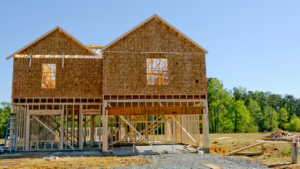
Dear Claire: What are Upfront Non-Refundable Buyer’s Fees?
Unveiling the Hidden Buyer’s Fees: What You Need to Know
There are upfront non-refundable buyer’s fees that you might not be aware of. I’m going to cite specifics to Portland as pricing will vary depending on where you are across the country. Some of them are probably going to be less expensive, depending on if you’re in the Midwest or the South. In Oregon, our contractors are pretty expensive. And inspectors, of course, are a little more expensive as well.
When you’re buying a home and walking through it, everybody is usually very excited. Then comes the part that kind of breaks your heart, which is finding out what’s wrong with the house. The way we find out what’s wrong with the house is an inspection.
When we walk through a house, I will point out all the major systems in the property and tell you what I think is their useful life. However, the inspector is going to do a really deep dive. The general home inspector is going to be at the property typically between three and seven hours, depending on how large the property is, and if there’s an outdoor shop or shed or something like that. They’re going to give you a book that’s going to have every single thing that’s wrong with that house. It’s going to include an outlet that doesn’t work, a dishwasher that’s leaking, or a leaky roof. Pretty much anything they can see with their naked eye.
The reason why that’s important is obviously you can’t see through walls. If there’s a knob and tube wiring or anything like that, they can’t see that. They produce this book for you and then we go back and get contractors to get bids on everything. Therefore, you know what the cost of those replacements are going to be. A general home inspection is outside of closing costs, or what people typically call closing costs. It’s an upfront fee while the transaction is going on.
The cost for a general home inspection depends on the square footage of the home. The least you’re going to probably see for a home inspection is about $500. I’ve seen costs all the way up to approximately $750 to $1,000, depending on the size of the home. If you are buying a multi-family home, it’s going to be more than that. It can be upwards of $1,500 if there’s four units to inspect with four different systems and all, and that’s for the general home inspection.
Most of our properties here in Oregon are old and are mostly built before the 1950’s and 1960’s. That means we did some things that we don’t do anymore. Some of the things that we did do that we don’t do anymore is bury oil tanks. We used to bury oil tanks and fill them with fuel to heat our houses. Some of those oil tanks leaked some of the time and caused environmental hazards. This is one of the tests that we recommend, which is also something that you wouldn’t know about. It’s not going to show up on the statement that your lender gives you, or an estimate of what you’re going to have out-of-pocket costs for, which is an oil tank scan. An oil tank scan is usually about $200. If they find an oil tank to test, they will test the soil and see if the oil tank is leaking, and that is going to be another $350. It’s a lot of money.
The other thing inspectors typically test are the sewers. Our infrastructure is often from the 1920’s, and sewers can often be affected at the joints. If you’re looking at the joints and they are like this, they separate or roots get in there — that is a major system problem. It can be really expensive to fix and is a $150 inspection cost as well.
The last inspection we often recommend is a radon test. That’s also $150 Radon is an odorless, colorless gas that causes lung cancer. It’s a heavy gas so it accumulates in the lowest part of a structure, and we test that to see what the concentration of the chemical substance is in the home.
We get to use all the information we gather from the inspections to renegotiate on the sale of the property. Just know that it’s money well-spent and of course, it’s money that you get to use so that you know what you’re getting into, and so that you’ll have no questions about what you need to do to fix the property.
An appraisal is for the bank that is paid up front and is usually about $500 to $750. It is typically included in the closing cost statement that your lender will give you. Most people don’t realize that it’s not paid at the end. It’s paid usually in the middle of the process of buying a home.
Your credit report check that’s going to happen immediately when you apply for credit is approximately $25. If you’re buying a house that is not very expensive, it will also be on your settlement statement. That is something the lender does take into consideration. Then there is the application fee. That’s usually not going to be very expensive either and is typically listed on the worksheet that the lender gives you. It’s just one of those fees that sometimes they charge you up front and not at the end like most people think.
The last thing most people don’t realize, however, they may know about it if they’ve gone to a lender is that they get an estimated worksheet and it gives a hypothetical, “Okay, I’m pre-approved for this amount. And if I’m pre-approved for this amount, then here’s all the fees associated with the purchase.”
One of the items listed there can use five different words for the same thing. People sometimes call it an escrow account. They sometimes call it an impound account. Or they sometimes call it reserves. They are all saying the same thing. It is your prepaid property taxes, homeowner’s insurance, and sometimes your mortgage insurance. All of those are going to be part of the closing costs. It’s a big amount of closing costs that they give you on that worksheet and it’s the lender taking that money up front so they can pay your future property taxes and your homeowner’s insurance the following year.
I’m happy to go through all of this and explain it with you. There’s a lot to know about buying a home that might not be obvious unless you talk to somebody and that’s what I’m here for is to talk to the professionals.
As always, I want to hear from you. If there’s anything you’re wondering about that we haven’t addressed here, please comment below and I’d be happy to address your question in the next Dear Claire video. Check out our YouTube channel where we’ve all kinds of great information, especially if you’re a homeowner and you’re thinking about selling. As always, thank you so much for tuning in and we’ll see you next week. Take care.
Have more questions or want professional advice on buying or selling a home?
Contact us at [email protected] or (503) 926-5213. We’re here to address all your real estate needs!




